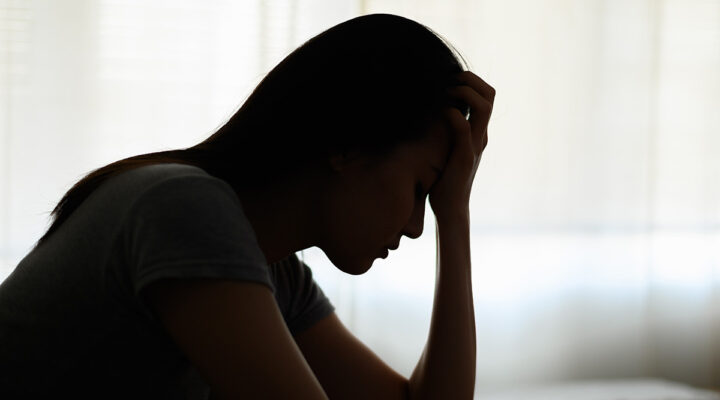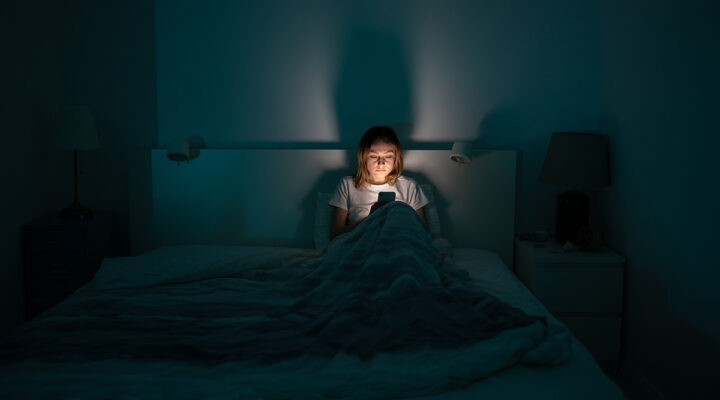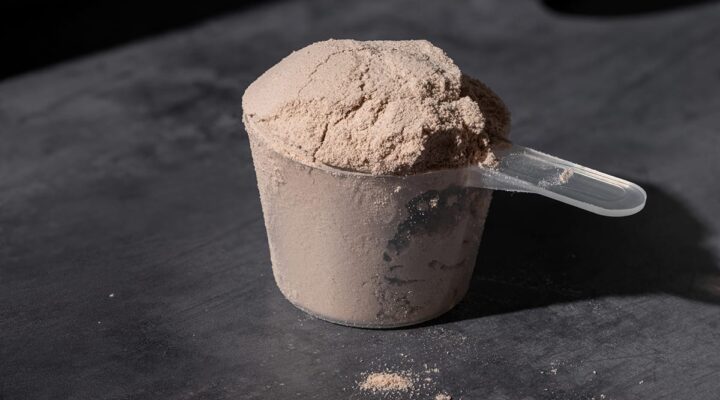Is Your Inner Self-Critic Stopping You From Reaching Your Goals?

There’s a lot of talk about the need to be kinder to ourselves. But what does that mean? How do you actually do it? And what does it do for you in return?
Most of us are familiar with the idea of an inner critic. It’s those negative thoughts that whisper, “I’m not good enough” or “I’m bound to mess this up”. Our internal saboteur can be pervasive, intrusive and – at its very worst – a powerful obstacle in the pursuit of our goals.
Our private inner dialogues are something that psychotherapist Julia Bueno has explored at length, after finding self-criticism sitting at the centre of almost all the problems clients bring to her consulting room. In her latest book, ‘Everyone’s a Critic: How We Can Learn to be Kind to Ourselves’ (Virago, £10.99), she delves into the topic in detail, looking at how we can spot self-criticism and what we can do to combat it.

What exactly is our self-critic?
The inner critic is the part of our mind that tends to judge and evaluate our actions, thoughts, and behaviours in a negative way. These thoughts can sometimes be fleeting, but all too often they’re pervasive, pointing out our perceived flaws, mistakes, and shortcomings.
“Self-criticism is keyed straight into our relationship with ourselves,” believes Bueno. “Whatever the presenting issue that comes to my door, it seems increasingly that being critical is at the heart of the issue.
“While we don’t have solid empirical data to say that it’s definitively on the rise, it’s something that seems to be cropping up more and more – especially in the age of social media and comparison culture.”

How can you spot a self-critic?
The inner critic can manifest in various ways. You might notice that you’ve been giving yourself a lot of negative self-talk lately, berating yourself over anything from your appearance to how you handled a specific situation.
“Often clients will talk about having an ‘inner voice’ that’s sabotaging their lives – whether that’s putting themselves forward for a work promotion or being brave in love and relationships,” says Bueno.
It can also crop up when we compare ourselves unfavourably to others, setting unrealistic standards, and focusing on our perceived weaknesses while ignoring our strengths.
Bueno believes that the age of social media has made it harder for people to tap out of this mindset, especially as many users share ‘highlight reels’ of their lives, while omitting the challenging and less glamorous aspects. “We know that there’s an epidemic of mental ill health amongst young people, and that social media is a contributory factor to this ‘comparing and despairing’ phenomena.” A recent study found that spending more than 3 hours on social media per day puts adolescents at a higher risk for mental health problems.
A lot of the time though, Bueno says that people don’t realise they have a self-critic working against them. “More often than not, it’s something that I have to point out to people. In many cases, they may have been talking negatively to themselves for so long that they don’t realise it’s holding them back from the things they want.”
While anxiety, depression or relationship problems might be the presenting reason that people end up in Bueno’s consulting room, self-criticism can often be the driving factor. “It takes a bit of teasing out for people to realise it’s a running theme. Or there’ll be a vicious circle where the client is criticising themselves for being anxious or depressed. In this way, issues can feed into each other.”
The inner critic can be loud and overpowering, amplifying any self-critical thoughts and undermining our self-confidence. Left unchecked, it can contribute to feelings of self-doubt, low self-esteem, and anxiety. “It can be quite a blocker for all aspects of life, so often I need to work on reverse engineering those core beliefs through therapeutic means.”
Where does self-criticism come from?
Bueno believes that parents play a major role in shaping our self-perception and internal dialogue, which can contribute to the development of self-critical tendencies later in life.
“There’s no doubt in my mind that the way we are brought up by our parents has an impact. We know this through the research behind all psychotherapies, especially now attachment work is fairly mainstream.”
Bueno says that parents who consistently use criticism, harsh judgments, or negative language when interacting with their children, can cause the internalisation of these critical messages. “Our caregivers have a profound influence on our sense of self. If you’ve got a parent who is explicitly very critical, it can feel shaming and sit with us for life.”
Parents who have high and often unrealistic expectations for their children’s achievements or behaviour can also inadvertently foster a sense of never feeling ‘good enough.’ That said, parental influence is not always the sole determinant of self-criticism – other factors like our friend groups, cultural influences, romantic experiences and our unique personalities can also play a part.

What can we do to banish self-criticism?
- Recognise the problem: Notice when self-critical thoughts arise. Pay attention to the patterns, triggers, and situations that tend to activate it. “It’s important to do a bit of self-investigation because lots of us are tuned out of the voice in our head saying, ‘You’re an impostor,” says Bueno.
- Tap out of hustle culture: “A common trick that we play upon ourselves is to think we need our self-critic because it’s motivating,” notes Bueno, “especially in the workplace. People are very frightened to let go of it, but we need to recognise that it’s ultimately generated from a place of fear.”
- Celebrate your successes: Instead of dwelling on the negatives, shift your focus toward your positive qualities, strengths, and achievements. Take time to acknowledge and appreciate your successes, even small ones.
- Practise mindfulness: “Mindfulness can help you to notice your self-critical thoughts without getting caught up in them,” says Bueno. Instead of listening to negative thoughts or trying to suppress them, practice being present in the moment and redirect your attention to the here and now.
- Speak to a therapist: If self-criticism is impacting your day-to-day wellbeing, it could be helpful to seek therapy or counselling. “A good psychotherapist can provide help, support, and specific techniques tailored to your individual needs to help you overcome what’s holding you back,” says Bueno.


















